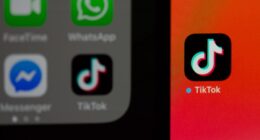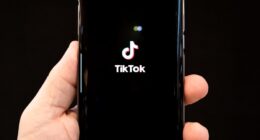Influencer marketing has emerged as a potent strategy for music promotion in the digital era. Within the music industry, influencers encompass a range of individuals, including musicians, bloggers, vloggers, and social media personalities who have amassed substantial and engaged followings. These influencers possess the capacity to shape their followers’ opinions and behaviors, making them valuable assets for music brands seeking to expand their reach and enhance their visibility.
Through collaborations with influencers, music brands can access established fan bases and leverage the influencers’ credibility to promote various aspects of their business, such as new releases, tours, and merchandise. The effectiveness of influencer marketing in the music industry extends beyond mere audience size; it hinges on connecting with the appropriate demographic. Music brands must identify influencers whose followers align with their target audience in terms of interests and values.
This targeted approach increases the likelihood that the influencer’s audience will be receptive to the music brand’s message and more inclined to engage with promoted content. Furthermore, influencers can provide valuable insights into their audience’s preferences and behaviors, enabling music brands to refine their marketing strategies for optimal impact.
Key Takeaways
- Influencer marketing is a powerful tool in the music industry for reaching new audiences and increasing brand awareness.
- Identifying the right influencers for your music brand involves considering their relevance to your target audience and their engagement levels.
- Creating effective partnerships with influencers requires clear communication, mutual respect, and a shared vision for the collaboration.
- Leveraging social media platforms such as Instagram, TikTok, and YouTube can significantly boost music promotion efforts through influencer partnerships.
- Utilizing influencer-generated content, such as sponsored posts, reviews, and endorsements, can enhance your music marketing strategy and reach a wider audience.
Identifying the Right Influencers for Your Music Brand
Key Factors to Consider
When selecting influencers for your music brand, it’s crucial to consider three key factors: reach, relevance, and resonance. Reach refers to the size of the influencer’s following, while relevance pertains to how well the influencer’s content aligns with your music brand’s image and values. Resonance, on the other hand, measures the level of engagement and influence the influencer has over their audience.
Authenticity and Credibility Matter
In addition to these factors, music brands should also assess an influencer’s authenticity and credibility. Authenticity is vital in influencer marketing, as followers are more likely to trust and engage with content that feels genuine and sincere. Credibility, on the other hand, is built over time through consistent and high-quality content that resonates with the influencer’s audience.
Content Alignment and Marketing Goals
By partnering with influencers who possess these qualities, music brands can ensure that their marketing efforts are well-received and have a meaningful impact on their target audience. Furthermore, music brands should also consider the type of content an influencer produces and how it aligns with their marketing goals. For example, if a music brand is looking to promote a new album, they may want to collaborate with influencers who create engaging video content or have a strong presence on streaming platforms.
Effective Influencer Selection
By carefully evaluating these factors, music brands can identify influencers who are best suited to help them achieve their marketing objectives.
Creating Effective Partnerships with Influencers

Once music brands have identified potential influencers for collaboration, it’s crucial to approach them in a way that fosters a genuine and mutually beneficial partnership. Building strong relationships with influencers is key to creating authentic and effective marketing campaigns that resonate with their audience. Music brands should take the time to understand an influencer’s content, audience, and brand partnerships before reaching out to them.
This demonstrates a genuine interest in the influencer’s work and increases the likelihood of a positive response. When approaching influencers, music brands should clearly communicate their goals and expectations for the partnership. This includes outlining the scope of work, deliverables, timelines, and compensation.
Transparency is essential in influencer marketing to ensure that both parties are on the same page and working towards a common objective. Additionally, music brands should be open to feedback and collaboration with influencers, allowing them creative freedom to authentically integrate the brand’s message into their content. Building a strong partnership with influencers also involves nurturing ongoing relationships beyond individual campaigns.
Music brands should seek opportunities for long-term collaborations with influencers who align with their brand values and have a genuine passion for their music. By investing in these relationships, music brands can benefit from consistent exposure to the influencer’s audience and build trust and credibility over time.
Leveraging Social Media Platforms for Music Promotion
| Platform | Audience Reach | Engagement Rate | Conversion Rate |
|---|---|---|---|
| 2.8 billion | 0.09 | 3% | |
| 1 billion | 1.22 | 5% | |
| 330 million | 0.05 | 2% | |
| YouTube | 2 billion | 0.64 | 7% |
Social media platforms have revolutionized the way music is discovered, consumed, and shared. For music brands looking to leverage influencer marketing, social media offers a diverse range of platforms to reach and engage with audiences. From Instagram and TikTok to YouTube and Twitter, each platform presents unique opportunities for music promotion through influencer partnerships.
Instagram is a popular platform for visual storytelling and connecting with fans through photos and videos. Music brands can collaborate with influencers on Instagram to showcase behind-the-scenes content, promote new releases, or run interactive campaigns such as challenges or giveaways. Similarly, TikTok has emerged as a powerful platform for music discovery and viral trends.
By partnering with influencers on TikTok, music brands can create engaging challenges or dance routines that resonate with the platform’s user base and drive organic reach and engagement. YouTube remains a dominant platform for music consumption and discovery, making it an ideal space for influencer collaborations. Music brands can work with influencers who create content related to music reviews, covers, or vlogs to promote their releases or upcoming events.
Twitter, on the other hand, offers real-time engagement and conversation around trending topics and events. Music brands can partner with influencers on Twitter to amplify their message during live events, album releases, or tour announcements. By strategically leveraging social media platforms for music promotion through influencer partnerships, music brands can expand their reach, drive engagement, and foster meaningful connections with fans across different digital touchpoints.
Utilizing Influencer-Generated Content for Music Marketing
Influencers are skilled content creators who have mastered the art of engaging their audience through compelling visuals, videos, and storytelling. Music brands can leverage this expertise by collaborating with influencers to create authentic and impactful content that resonates with their audience. Whether it’s through sponsored posts, product placements, or branded experiences, influencer-generated content can be a powerful tool for music marketing.
One effective way to utilize influencer-generated content is through product placements or endorsements within an influencer’s regular content. For example, a musician could partner with a fashion influencer to feature their merchandise in a stylish lookbook or outfit of the day post. This type of organic integration allows the brand’s message to reach the influencer’s audience in a natural and non-disruptive manner.
Another approach is to co-create branded content with influencers that aligns with their unique style and resonates with their audience. For instance, a music brand could collaborate with a travel influencer to create a series of vlogs featuring their music as the soundtrack for different destinations. This type of collaboration not only introduces the brand to new audiences but also creates an emotional connection between the music and the travel experiences shared by the influencer.
Additionally, music brands can repurpose influencer-generated content across their own marketing channels to amplify its reach and impact. By sharing influencer-created content on their website, social media profiles, or email newsletters, music brands can extend the lifespan of the collaboration and continue to engage with their audience long after the initial campaign has ended.
Measuring the Success of Influencer Marketing Campaigns

Evaluating Reach and Visibility
Reach measures the total number of people who have been exposed to an influencer’s content featuring the music brand. This metric helps music brands understand the potential exposure gained from the partnership and assess its impact on brand visibility.
Assessing Engagement and Resonance
Engagement refers to the level of interaction and response generated by an influencer’s content. Metrics such as likes, comments, shares, and click-through rates indicate how well the audience has engaged with the brand’s message and whether it has resonated with them.
Tracking Conversions and Sentiment
Conversions track the number of actions taken by an influencer’s audience in response to the brand’s call-to-action. This could include streaming or purchasing a song or album, signing up for a newsletter, or attending a live event. Sentiment analysis involves monitoring audience feedback and sentiment towards the influencer collaboration. By analyzing these KPIs, music brands can gain valuable insights into the effectiveness of their influencer marketing campaigns and make data-driven decisions to optimize future partnerships and strategies.
Navigating Legal and Ethical Considerations in Music Influencer Marketing
As influencer marketing continues to evolve, it’s essential for music brands to navigate legal and ethical considerations to ensure compliance and transparency in their partnerships. One key consideration is disclosure requirements for sponsored content. In many jurisdictions, influencers are required by law to disclose any material connection or compensation received from a brand when promoting its products or services.
Music brands should work closely with influencers to ensure that sponsored content is clearly labeled as such to maintain transparency and trust with their audience. Additionally, copyright considerations are important when using music in influencer-generated content. Music brands should ensure that they have obtained all necessary rights and licenses for any music used in sponsored posts or collaborations with influencers to avoid copyright infringement issues.
Ethical considerations also come into play when partnering with influencers in the music industry. Music brands should align themselves with influencers who share similar values and ethical standards to avoid any potential reputational risks associated with controversial or inappropriate behavior from their partners. Furthermore, data privacy regulations such as GDPR (General Data Protection Regulation) in Europe or CCPA (California Consumer Privacy Act) in the United States require careful handling of personal data collected through influencer marketing campaigns.
Music brands should ensure that they comply with relevant data protection laws when collecting and processing personal information from influencers or their audience. By proactively addressing these legal and ethical considerations in influencer marketing partnerships, music brands can build trust with their audience, protect their brand reputation, and ensure compliance with relevant regulations in the digital landscape.
If you’re a musician looking to boost your online presence and reach a wider audience, you might want to check out this article on musicmarketing.digital. This website offers valuable insights and tips on how to effectively use influencer marketing to promote your music and connect with potential fans. Whether you’re just starting out or looking to take your music career to the next level, this article can provide you with the guidance you need to navigate the world of influencer marketing in the music industry.
FAQs
What is influencer marketing for musicians?
Influencer marketing for musicians is a strategy where musicians collaborate with social media influencers to promote their music, brand, or events to a targeted audience.
How does influencer marketing benefit musicians?
Influencer marketing can help musicians reach a larger and more targeted audience, increase their visibility and credibility, and ultimately drive more streams, downloads, and ticket sales.
What types of influencers can musicians collaborate with?
Musicians can collaborate with various types of influencers, including music bloggers, YouTubers, Instagrammers, TikTokers, and other social media personalities who have a following that aligns with the musician’s target audience.
How do musicians find and approach influencers for collaboration?
Musicians can find influencers through social media platforms, influencer marketing agencies, or influencer databases. They can approach influencers by reaching out via direct message or email, and proposing a collaboration that benefits both parties.
What are some examples of successful influencer marketing campaigns for musicians?
Successful influencer marketing campaigns for musicians include sponsored content, product placements, influencer endorsements, and influencer-hosted events or meet-and-greets.
What are the key considerations for musicians when engaging in influencer marketing?
Musicians should consider the authenticity and relevance of the influencer’s audience, the terms of the collaboration, the budget, and the overall alignment with their brand and marketing goals.









